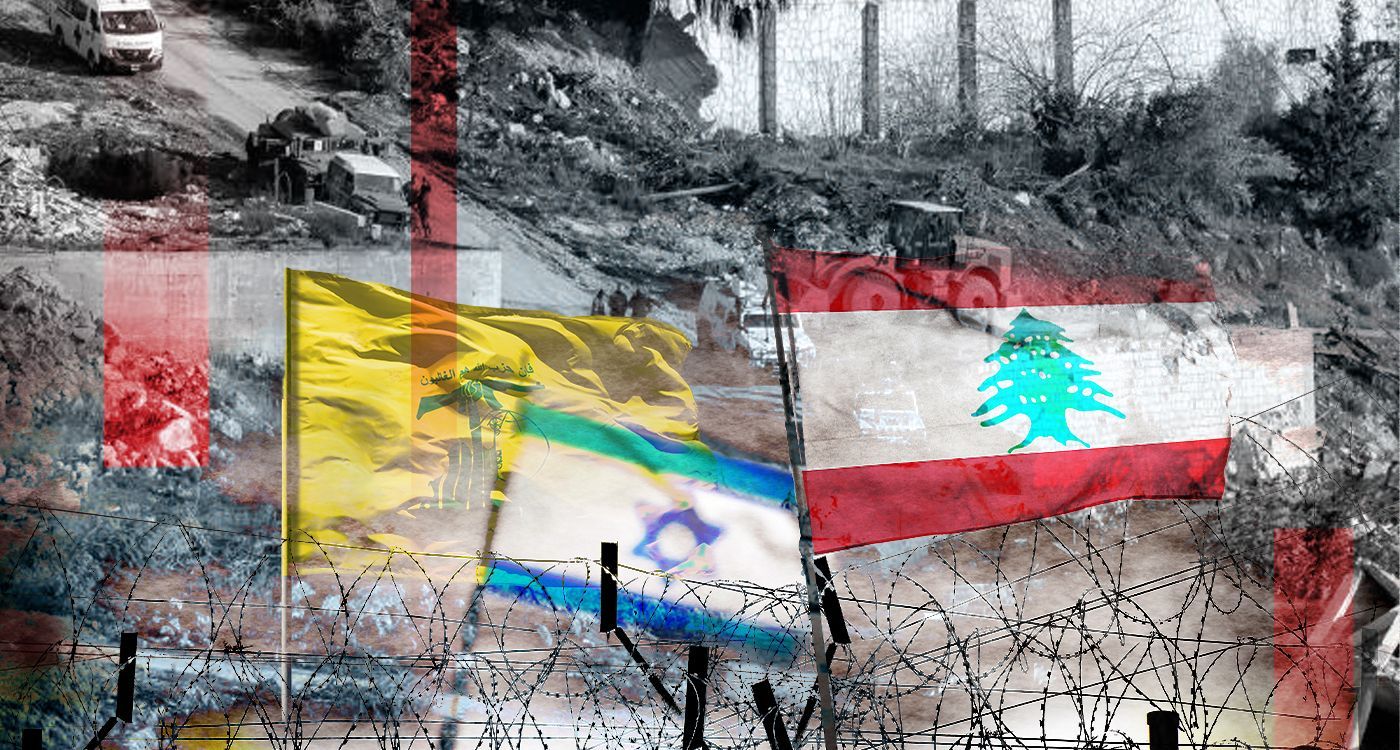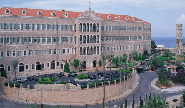
After several months of a – partial – cessation of hostilities between Israel and Hezbollah, the expiration of the ceasefire raises important legal questions about security, particularly whether hostilities could (or could not) resume.
The ceasefire agreement, which was decreed in November 2024 for a period of 60 days, was renewed in January 2025 and expired on Tuesday morning. Although fragile, it allowed for a period of respite from violence. Today, this new deadline opens the door to a phase of uncertainty, in which Israel intends to maintain its positions at five strategic points along the Lebanese border and intervene militarily in “high-risk” areas where the Lebanese army has yet to be deployed.
“The actions of the Israeli army against Hezbollah will continue with intensity,” Israeli Defense Minister Israel Katz stated on Tuesday. “We will maintain our presence in five regions of southern Lebanon to protect the northern colonies (of Israel, ed.),” he added. He also emphasized that Israel would not allow a return to the situation before October 7, 2023 (the date of Hamas' offensive).
Considering this a blatant violation of its sovereignty, Lebanon strongly condemned the continued presence of Israeli forces in the southern regions.
Legal Framework
According to Antonios Abou Kasm, a professor of international law at the Lebanese University and an international lawyer pleading before international courts, United Nations Security Council Resolution 1701 (2006) constitutes “the essential legal framework for the ceasefire,” while the “Declaration (of November 27, 2024) on the Cessation of Hostilities and the related obligations for strengthening security provisions and implementing Resolution 1701 is an agreement that serves as a mechanism for enforcing this resolution.”
However, the expiration of the 60-day period prescribed in Article 12 of the ceasefire agreement, which was extended until February 18, 2025, “does not imply that the agreement has ended or been revoked,” he stresses. According to him, it is “an ongoing agreement that only concludes upon the full implementation of Resolution 1701.” “Non-compliance with the deadlines set in this agreement constitutes a violation of a conventional obligation,” he asserts.
Thus, Lebanon and Israel are both required to adhere to Security Council Resolution 1701, which is binding and was enacted under Chapter VII of the United Nations Charter, explains Abou Kasm. “Resolution 1701 takes precedence over the ceasefire agreement because, under international law, Security Council decisions override bilateral agreements between the parties to the conflict,” he adds.
Could Hostilities Resume?
Given the current situation, the resumption of hostilities is no longer “regulated.” “Nothing can prevent such a scenario,” emphasized magistrate Antoine Messarra, a former member of the Constitutional Council, and lawyer Saïd Malek, in an interview with This is Beirut. However, they note that “given Hezbollah’s reduced military capabilities and the diplomatic pressure exerted on both Lebanon and Israel, such an eventuality is highly improbable.”
When it comes to legal considerations, international humanitarian law imposes obligations on conflicting parties even after a ceasefire ends. When such an agreement expires, the parties cannot automatically resume hostilities unilaterally without triggering a new form of armed conflict, legal experts explain.
However, the resumption of combat could be legally justified as “self-defense” if one of the parties perceives itself to be under attack or threatened. The central question remains whether such a resumption would comply with international law, particularly concerning the principles of international humanitarian law and United Nations Security Council resolutions.
François Dubuisson, a professor at the Free University of Brussels and a researcher at the Center for International Law, widely consulted by the UN General Assembly for his expertise on the Israeli-Palestinian conflict, states that “for any resumption of hostilities to be 'valid,' there must be a legal basis for initiating combat.” He cites Article 2, paragraph 4 of the UN Charter, which prohibits the use of threats or force against another state unless it qualifies as self-defense.
Abou Kasm corroborates this view, “The parties to the conflict have no right to resort to force except in cases of self-defense. In other words, the Israeli army has no right to violate the Declaration on the Cessation of Hostilities unless Lebanon launches a military attack, as stipulated by Article 51 of the UN Charter.”
Thus, the expiration of the ceasefire does not automatically restore a state of war, but it does open the door—under certain conditions—to a resumption of hostilities if one of the parties believes its interests are threatened, which could be the case for Israel. The Israeli government has repeatedly cited the danger posed by Hezbollah’s arsenal and sites that the Lebanese army has not yet dismantled, according to Israeli authorities.
Hezbollah, in turn, could argue that the expiration of the ceasefire removes the restrictions on its military actions, particularly if it perceives Israeli actions as a threat to its interests. If this were the case, a new military escalation could occur, potentially reigniting a cycle of violence in the region.
To summarize, in order to launch a new military action, Israel—or Hezbollah—would need to justify its actions under international law, invoking reasons such as self-defense, in accordance with Article 51 of the UN Charter. In this context, Israel, which announced its intention to maintain forces in strategic locations along the Lebanese border, could cite security threats to justify military intervention, especially in areas not covered by Lebanese army deployments. However, by continuing to occupy such border zones, Israel is committing what is legally defined as “armed aggression against Lebanon,” as Dubuisson explains. This, he argues, “opens the possibility—not for Hezbollah, but for the Lebanese state—to mobilize its armed forces and assert its sovereignty by military means.”
“According to the Declaration on the Cessation of Hostilities, in the event of a violation, the injured party must refer the matter to the mechanism (the ceasefire monitoring committee) rather than intervene militarily,” Abou Kasm explains. He adds, “Beyond violating this declaration, the presence of the Israeli army in these five locations constitutes an occupation of Lebanese territory and a violation of Resolutions 425 (1978) and 1701 (2006), among other Security Council resolutions.” Consequently, “any Israeli violation of Article 2 of the aforementioned declaration, under which Israel commits 'not to conduct any offensive military operations against Lebanese targets, including civilian and military targets or other state targets, on Lebanese territory by land, air, or sea,' would allow the Lebanese government to refer the matter to the monitoring mechanism and UNIFIL under Article 10 of the Declaration on the Cessation of Hostilities,” Abou Kasm notes.
The Role of the International Community and the United Nations
The expiration of the ceasefire could also trigger a reaction from the international community, particularly the United Nations. According to existing resolutions, especially UN Security Council Resolution 1701, any new escalation of the conflict between Israel and Lebanon, particularly involving Hezbollah, could lead to an international intervention aimed at restoring order and protecting civilians. The role of UN peacekeepers could thus be reinforced to prevent the resumption of hostilities.
“It is also possible that diplomatic discussions could be initiated to reach a new ceasefire agreement or to negotiate mechanisms to defuse tensions, particularly if hostilities risk escalating into a broader conflict,” explain Malek and Messarra.
To what extent can international diplomacy and increased military vigilance by all involved actors play a crucial role in preventing a full-scale war?




Comments